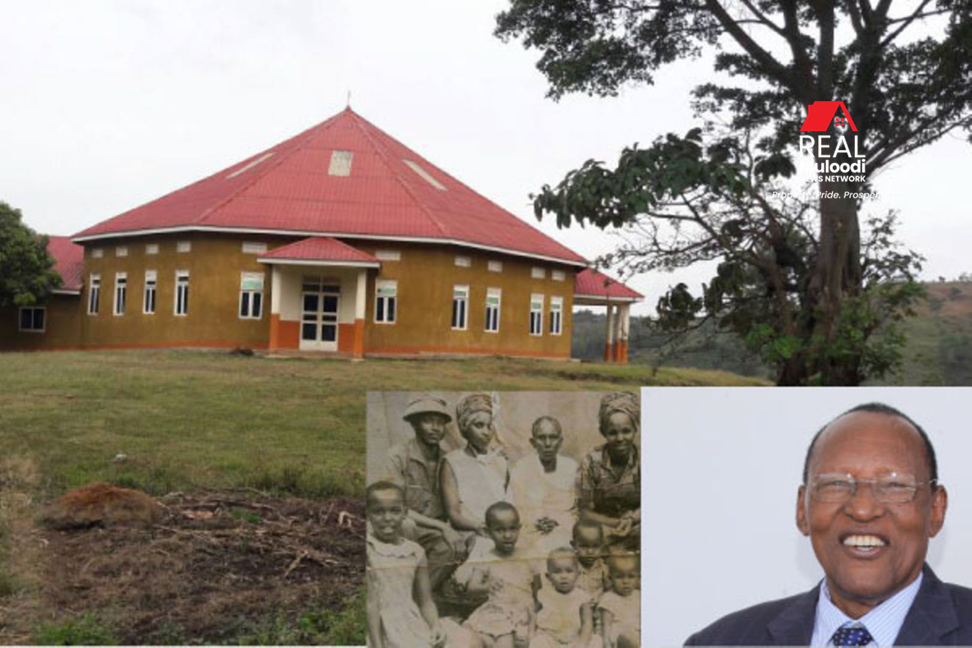UGANDA, Kampala | Real Muloodi News | Donat Kananura was born in Uganda during the 1950s. Following his parents’ separation when he was two years old and his father’s death two years later, he was raised by his grandparents. To support his education, Kananura undertook various jobs, including working for multiple families in Kabale.
He stated, “I would do odd jobs for as many as five families in Kabale. Those days (1950s), the wealthiest families were either Indians or British; those are the people I worked for.”
After leaving school at level six, he engaged in several manual jobs such as porter on construction sites, shamba boy, washer boy, turn boy, market clerk, and carpenter.
“I did any available job that I could qualify for. As a 17-year-old school dropout, my options were limited to menial jobs,” he added.
Transition to Business
In 1954, Kananura earned his first significant salary of Shs30 at a construction site, later working as a mason for Shs90. He then secured employment with a wealthy Indian family in Kabale as a houseboy.
His employer provided him with basic mathematics lessons, preparing him for greater responsibilities. Eventually, he was promoted to the position of procurement officer. However, this role was short-lived due to his employer’s dismissal over alleged improper transactions.
Entrepreneurial Ventures
Seeking financial independence, Kananura entered the garment industry in 1957, purchasing a sewing machine and learning tailoring from a friend named Karema.
Concurrently, he worked as a mine clerk at a tin mine. In 1958, he relocated to Kyeshero-Kayonza in Kanungu District, expanding his business to include coffee and paraffin trading.
He travelled approximately 25 kilometres to the Democratic Republic of Congo to procure goods, employing 30 young men to transport supplies and opening stores to accommodate the growing enterprise.
Profits from these ventures were invested in a tea plantation in Kayonza. Kananura also explored opportunities in the tin business, which led him to Congo. Unfortunately, during this period of political instability, he was arrested by armed factions and lost all his savings.
Reflecting on this experience, he said, “I left as a well-off businessman chasing more wealth and returned penniless.”
Recovery and Expansion
Upon returning to Uganda, Kananura resumed his tailoring business to rebuild capital. His integrity in business dealings earned him trust within the Congolese business community, allowing him to sell a gold nugget on their behalf in Kampala.
The proceeds enabled him to purchase a car and further invest in gold trading. He established an umbrella body of gold dealers in Uganda, serving as treasurer, and continued to invest in coffee and gold, owning deposits in Uganda and selling in Kenya.
Real Estate Investments
Donati Kananura has interests in real estate, farming, mining and transport and with premium properties in Kampala.
Kananura’s success in various industries facilitated his entry into real estate. He acquired land in Naguru, Kampala, where Panamera Bar & Lounge is located.
After a 12-year legal battle, the Court of Appeal ruled in 2021 that Kananura was the rightful owner of the land on Plots 20-30 along Saddler Way in Naguru.
Justice Cheborion Barishaki stated, “Kananura, having been declared as the rightful owner of the property, is entitled to possession and quiet enjoyment.”
Community Contributions
Between 1968 and 1969, Kananura constructed Kyeshero Primary School in Nyamiyaga, Kanungu District, which he later entrusted to the government under the Ministry of Education.
He also provided piped water to the community, extending seven kilometres from Butogota Trading Centre.
Additionally, he supported the establishment of Kyeshero Secondary School, building teachers’ quarters, classrooms, a sickbay, a laboratory, and offices, and contributing to teachers’ salaries. The community named a Catholic church after him—St. Donati Catholic Church in Kyeshero, Kanungu.
Legal and Financial Challenges
In 2022, over 5,000 residents in Butoloogo sub-county, Mubende District, accused Kananura of destroying their crops and attempting to annex their land. Allegations included the use of police to harass residents and grazing animals in their gardens.
Kananura’s farm manager declined to comment, and his known telephone number remained unanswered. Members of Parliament, including Pascal Mbabazi and Hope Grania Nakazibwe, called for investigations into the matter.
In 2025, Parliament rejected a government request to exempt Kananura from paying taxes amounting to Shs2.7 billion.
The Finance Committee, led by Chairperson Amos Kankunda, found no legal or financial justification for the waiver, despite claims of Kananura’s health issues affecting his financial standing.
READ MORE LIKE THIS:
Court Grants Family Access to Kampala Property Mogul Kiwanuka
Building a Country House: Grace and John Ekudu’s Journey to Owning a Business
Meet Jonathan Edward Nsubuga, the Architect Shaping Kampala’s Iconic Landmarks



